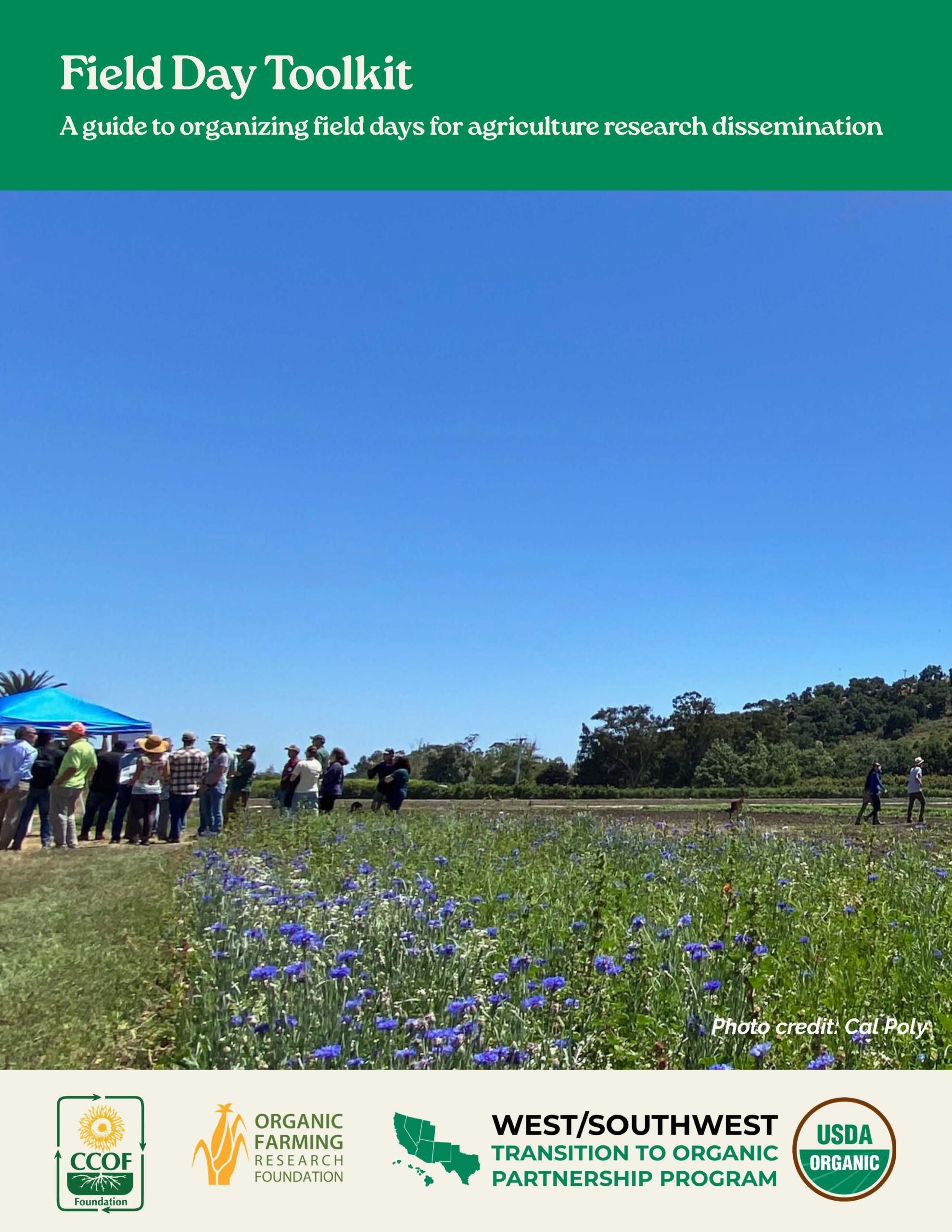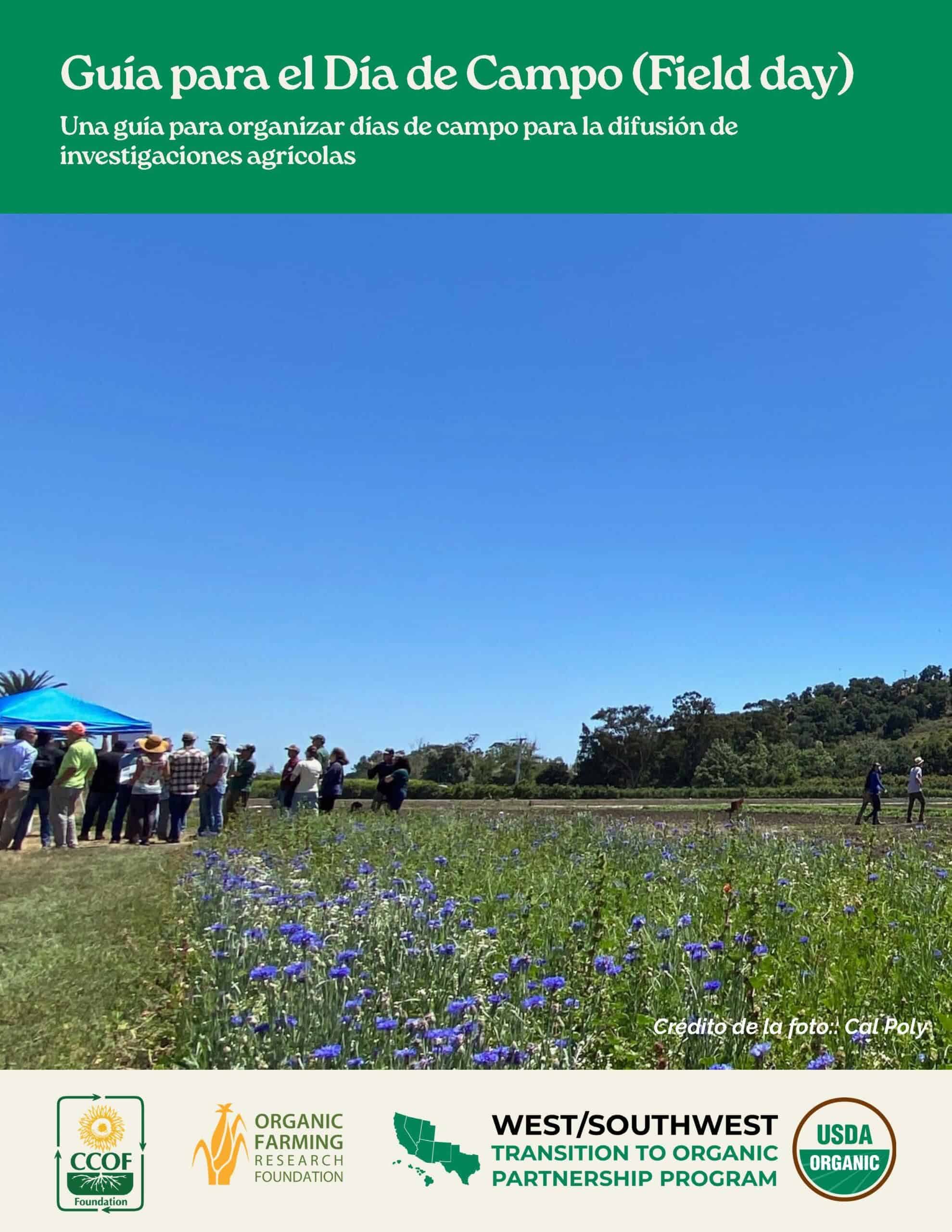OFRF Welcomes Two New Members to Its Board of Directors
FOR IMMEDIATE RELEASE
Carrie-Anne Palmeri of Nature’s Path Organic Foods and Bryan Wood of Organic Valley/CROPP Cooperative join OFRF’s Board of Directors.
SANTA CRUZ, Calif., Jan. 13, 2025 – The Organic Farming Research Foundation (OFRF) is proud to announce the addition of two esteemed professionals to its Board of Directors: Carrie-Anne Palmeri, Organic Program Manager at Nature’s Path Organic Foods, and Bryan Wood, Director of Farm Resources at Organic Valley’s CROPP Cooperative. These two highly respected leaders bring valuable expertise to help guide OFRF’s mission to foster the improvement and widespread adoption of organic farming systems.

Bryan Wood

Carrie-Anne Palmeri
Carrie-Anne Palmeri serves as Organic Program Manager to Nature’s Path Organic Foods, North America’s largest independent organic breakfast food company whose pursuit has been to “leave the Earth better than we found it” throughout its upwards of 50-year legacy as a pioneer & steward to the organic community. With the personal mission of advancing organic integrity from seed to fork and championing equitable access to the organic opportunity across borders, Palmeri builds on nearly two decades of extensive experience across the industry to lead the Nature’s Path Sustainable Supply Chain Program as well as its Organic Policy Advocacy, Regulatory Affairs, and Strategic Partnerships.
“It is an honor to join the Organic Farming Research Foundation Board to support the critical work they’re doing to equip the organic sector for success,” said Palmeri. “OFRF’s powerful farmer-driven research; commitment to meaningful and equitable access to organic education and technical outreach; coupled with targeted organic-first policy advocacy is key to the health of our collective food future.”
Bryan Wood, a seasoned advocate for organic farmers, brings over a decade of experience from Organic Valley/CROPP Cooperative, where he develops programs and services that strengthen farmer support and enhance financial stability. Through his hands-on leadership, Wood has advanced initiatives such as farm financial analysis and strategic pay price tools, ensuring organic farmers receive fair compensation for their work.
“Joining OFRF’s board is an opportunity to further amplify the voices of organic farmers and build critical bridges between growers and the broader industry,” said Wood. “I’m excited to support OFRF’s work advancing research and policies that empower farmers to succeed.”
Palmeri and Wood join a distinguished group of board members committed to OFRF’s farmer-first mission. Their combined expertise with major organic brands will enhance OFRF’s capacity to connect the needs of organic farmers with the wider organic industry. This alignment is crucial as OFRF advances its strategic plan for 2024-2029, which prioritizes farmer-focused research, education, and advocacy for organic systems.
These appointments come at a pivotal time for OFRF, which recently launched its Organic Stewardship Council (OSC)—a new initiative to complement the board’s efforts by assembling a farmer-led group dedicated to advancing organic systems and research nationwide. The OSC, alongside the expertise of Palmeri and Wood, underscores OFRF’s commitment to fostering collaboration that uplifts farmers while driving sustainable change across the organic sector.
“The organic sector thrives on collaboration,” said April Jones Thatcher, OFRF Board President, and Farmer/Founder of April Joy Farm. “With Carrie-Anne and Bryan’s extensive backgrounds and their dedication to organic farming, we’re better positioned than ever to bridge the needs of organic farmers with the broader industry and continue driving impactful change.”
As OFRF continues to champion farmer-driven research and equitable access to organic education, these new board members will play a pivotal role in steering the organization toward a more sustainable and resilient future for organic agriculture.
For more information about OFRF, its mission, and the Organic Stewardship Council, please visit www.ofrf.org.
###
About Organic Farming Research Foundation
The Organic Farming Research Foundation (OFRF), headquartered in Santa Cruz, California, with a remote team based across the U.S., works to foster the improvement and widespread adoption of organic farming systems. OFRF cultivates organic research, education, and federal policies that bring more farmers and acreage into organic production. For more information about OFRF, please visit our website: www.ofrf.org.
Media Contact
Ashley Dulaney, Communications Director, OFRF
ashley@ofrf.orf
P.O. Box 440, Santa Cruz, CA 95061






